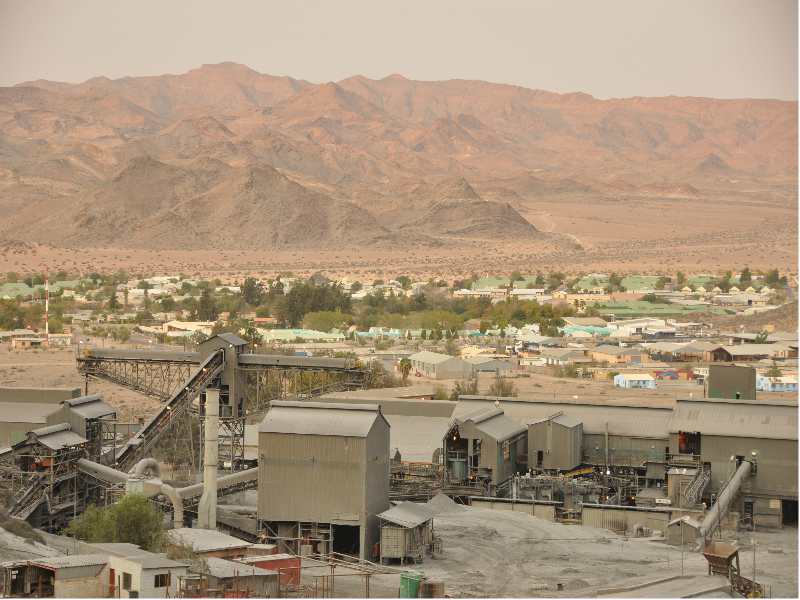Trevali Mining, a Canadian base metals mining company, has begun early work on its Rosh Pinah 2.0 (RP2.0) mine expansion project in south-western Namibia. The Rosh Pinah underground zinc/lead mine has been in continuous operation since 1969. Trevali owns 90% Namibian broad-based empowerment groups owning 10% and a staff empowerment participation plan owning 10%.
Also Read: Pupkewitz to Build Onandjokwe Hospital Offices in Namibia
In August 2021, positive results from an independent RP2.0 feasibility study were revealed. The research looked at the possibility of increasing existing throughput from 700,000 to 1.3 million tonnes per year by modifying the processing plant, building a paste fill factory, and building a dedicated entrance and ramp to the WF3 deposit. Trevali stated in a statement released on January 20 that it was moving forward with some components of RP2.0 to keep the project on track and manage the risks identified in the feasibility assessment.
Internal cash flows are planned to fund the early works program, which has a capital budget of $20 million. The acquisition of mobile equipment, a power supply system update, the procurement of long-lead items for the paste backfill, portal building and decline development, and detailed engineering for the process plant are all part of the early works program.
Financing the Rosh Pinah Expansion Project
Trevali said it was focusing on acquiring project finance for the RP2.0 expansion project and refinancing its corporate revolving credit facility and a facility with mining giant Glencore, both of which were due to mature in September. In September 2021, Trevali hired the financial services firm Endeavour Financial to help the company form a lending syndicate, coordinate lender due diligence, and negotiate financing documentation to provide a competitive non-equity financing solution RP2.0 and refinance the existing corporate revolving credit facility.
Trevali said it was considering several opportunities for the financing package, including project finance debt, subordinated debt and a silver stream on Rosh Pinah’s silver production. Trevali said it had also received nonbinding expressions of interest from several capital providers about participating in the financing process, including commercial banks, streaming and royalty companies, and mining-focused alternative lenders, as well as from Rosh Pinah’s concentrate offtake Glencore.
Glencore has expressed interest in the project by providing a $33 million finance package, which Trevali claimed might include a $13 million extension to the existing Glencore facility. According to Trevali, the RP2.0 expansionary capital expenses will be around $111 million. Over a nine-year post-expansion mine life, the extended mine was predicted to produce 135 million pounds of payable zinc, 23.7 million pounds of lead, and 303 000 oz/y of silver on average.

